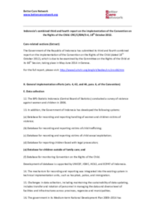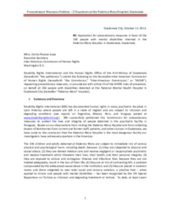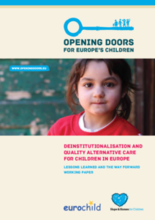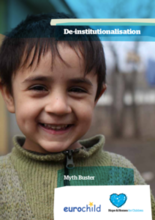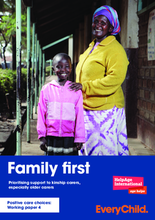Displaying 12911 - 12920 of 14579
The purpose of this review was to identify evidence-based early response strategies and interventions for improving the outcomes of children outside of family care, including children of and on the street, institutionalized children, trafficked children, and children affected by conflict and disaster, and who are exploited for their labor. A conclusion was drawn that there is a strong need for strengthening the evidence base regarding the effectiveness or early assessments and responses to children living outside family care and for using evidence to guide operational policy and practice.
Care related section of the Government of the Republic of Indonesia's third and fourth combined report on the implementation of the Convention on the Rights of the Child (dated 18th October 2012).
This paper reviews the various methodologies applied to identify and enumerate these often hidden and/or mobile populations. Methodologies that identify and enumerate children outside of family strive to meet two objectives: (1) to estimate the number and characteristics of a specific vulnerability category and (2) to determine eligibility to receive services. Conclusions from these reviews advocate for tailoring a methodology to the specific circumstances under which it is meant to identify or enumerate children outside of family care.
The objective of this review was to strengthen the evidence-base for policy and practice for support of children outside of family care through effective, efficient and sustainable mechanisms for monitoring and evaluation. Findings show that fostering a stronger evidence-base to improve protection for vulnerable children requires evaluations that are integrated into program development, use context-appropriate methodologies able to assess intervention scalability and employ more longitudinal designs to explore children’s trajectories.
Recognizing the need for evidence to inform policies, strategies, and programs to care for vulnerable children, the U.S. Government convened an Evidence Summit on Protecting Children Outside of Family Care on December 12–13, 2011, in Washington, D.C., USA. This paper summarizes the background and methods for the acquisition and evaluation of the evidence used to achieve the goals of the Summit.
This petition was submitted to the Inter-American Commission of Human Rights (IACHR) by Disability Rights International and the Human Rights Office of the Arch-Bishop of Guatemala requesting precautionary measures, in accordance with article 25 of the IACHR rules of procedure, on behalf 334 children and adults with disabilities detained at the National Mental Health Hospital in Guatemala City (“Federico Mora” hospital). The petition documents the serious risks of physical and psychological harm of those detained at Federico Mora.
This paper aims to raise awareness on the perverse effects of institutionalisation on children and it calls for comprehensive system reforms, starting with a transition towards family and community-based care. It highlights country level lessons learnt in the European context that demonstrate how deinstitutionalisation can be achieved in practice.
This briefing paper seeks to address key misunderstandings about de-institutionalisation. It explains what it is and what it is not and addresses key questions often asked about the need for such institutions, the role they play and the impact of this transformation and what it entails.
The paper calls for greater prioritisation to be given to supporting kinship carers and the children in their care, including ensuring such households are able to access social protection, and receive psycho-social and health care support and assistance with education where needed.
This brief lays out the rationale for investing in social protection, care, and support for children affected by HIV and AIDS. It demonstrates how investing in these initiatives not only improves the resilience of HIV affected households but can also enhance HIV prevention and treatment outcomes.

